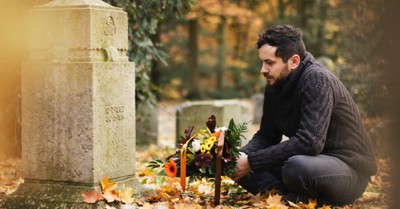Conveying Hope in the Wake of Tragedy
- Alex Crain Contributor
- Published Apr 16, 2013

Waves of grief and overwhelming questions can flood the soul during times of crisis like the Boston marathon bombing. Sensationalistic commentary and news reports tend to whip up ratings and attention for those covering tragic events at the surface level. But, too often, very little is offered in terms of meaningful perspective.
Whether or not we ever fully understand why evil happens in this life, we need hope in the wake of tragedy.
Many at this moment are praying and seeking to help families, loved ones, and neighbors in the aftershock. Even as Christians pray, many cringe with anticipation that some self-appointed “spokesperson” for Christianity will step in front of a camera somewhere and pontificate how calamities like this are the due penalty for America’s trenchant immorality and abandonment of God.
Such statements hardly demonstrate the saving grace of Christ to people who are desperate for hope.
When the word “hope” appears in the New Testament, it means “a confident assurance of good.” Such intrinsic good is anchored in Christ, regardless of outward circumstances. In other words, biblical hope is not a naïve wish—as in “I hope everything turns out alright.” Rather, it is a confident assurance tied to the historic realities of Christ’s sinless life, sacrificial death, and victorious, literal resurrection. Often in Scripture (as in the book of 1 Peter 1:3), such hope is extended even to bewildered people facing the ravages of injustice and the fires of persecution.
Fortunately, Christians firmly grounded in the wisdom of Scripture throughout history have been able to offer seasoned counsel to those being crushed by the brokenness of this world. It’s the message of hope-filled voices like these that we pray will rise above whatever graceless sound bites may come.
Consider a few exemplary voices that convey the hope of Christ in the wake of tragedy:
David Fairchild, “sin is insanity: a pastoral word on the boston marathon bombings”
Ed Welch, “what not to say to those who are suffering”
R.C. Sproul, “the mystery of evil”
James Emery White, “the answer is evil”
Alex Crain is editor of christianity.com and a contributing editor for Crosswalk.com and BibleStudyTools.com. He serves as an associate pastor at Harvest Christian Fellowship in Richmond, VA. Follow him on Twitter @alex_crain.





















